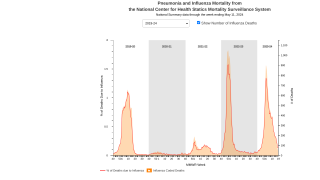89% of Consumers Continue Trusting Pharmacists Communications

As the Fall 2024 respiratory season approaches, recent studies reveal disparities in who consumers trust regarding medical information.
According to the J.D. Power 2024 U.S. Pharmacy 16th Study released today, overall satisfaction with mail-order pharmacies is rising steadily this year.
Meanwhile, chain drug stores have seen their overall satisfaction scores slide far below the brick-and-mortar category average,
One highlight from this J.D. Power study announced on July 30, 2024, was that brick-and-mortar pharmacies excel in pharmacists’ communication with customers. About 89% of respondents indicated their pharmacist’s explanation was understood—a significant positive change from 2023.
However, just 18% of mail-order customers say their pharmacy offers a well-designed digital experience, indicating that they are losing ground on providing a digital experience that meets customers’ expectations.
Customers cite confusion about whether digital pharmacies would work with their current insurance, trustworthiness, and lack of use among friends and family as the most significant barriers to adoption.
"The critical link that may allow brick-and-mortar pharmacies to keep pace with the rise of mail order and digital pharmacies is the familiarity that customers have with their pharmacist,” said Christopher Lis, managing director of global healthcare intelligence at J.D. Power, in a press release.
According to this ranking from 13,505 pharmacy customers who filled prescriptions within the past 12 months and were fielded from September 2023 through May 2024, Good Neighbor Pharmacy ranked highest among brick-and-mortar chain drugstore pharmacies for an eighth consecutive year.
Health Mart ranked second, and Rite Aid Pharmacy ranked third.
Separately, an Orginal Investigation published by The JAMA Network on July 31, 2024, discussed that among more than half a million adult survey responses between April 2020 and January 2024, the trust in physicians and hospitals decreased from 71% to 40% throughout the recent pandemic.
A lower level of trust was associated with a decreased likelihood of vaccination across all sociodemographic groups.
These researchers stated that these associations were not explained by political affiliation nor fully accounted for by trust in science, suggesting some specificity for medicine per se.
While these studies indicate the rapid changes in how people view their healthcare provider in 2024, it's essential to reflect on how many lives have been saved over the decades by the appropriate use of vaccines.
Our Trust Standards: Medical Advisory Committee
























